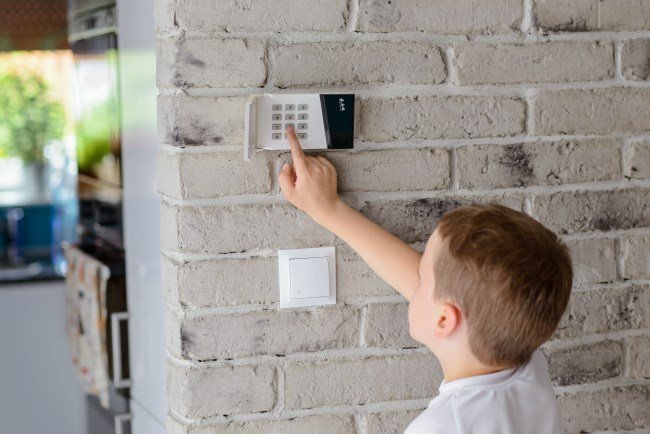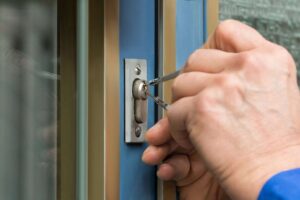Home security and safety should be a top priority for every household. As a parent, it’s important to ensure that your home is secure and that your children understand the importance of keeping your home safe. While many parents focus on installing alarms, locks, and other security systems, teaching kids about home security can be just as crucial. Kids who understand home safety practices are less likely to make mistakes that could compromise the security of their home.
In this blog, we’ll discuss the importance of teaching kids about home security and safety and how working with a locksmith in Philadelphia can help create a safer environment for everyone.
Why Kids Should Learn About Home Security and Safety
Children are naturally curious, and as they grow older, they become more independent. While you can do your best to keep them safe, there are times when they may need to navigate situations on their own, such as when they’re home alone or with friends. Teaching kids about home security helps them understand what they can do to protect themselves, their home, and their belongings. Here are some key reasons why it’s important to teach kids about home security and safety:
1. Reducing the Risk of Break-ins
One of the main reasons for teaching kids about home security is to reduce the risk of break-ins. If children know how to properly lock doors and windows, they can prevent intruders from entering the home. When children are aware of the importance of keeping doors locked and windows shut when they’re not in use, they are less likely to forget to secure these entry points.
2. Empowering Them to Respond in Emergencies
Kids are bound to face emergencies at some point, whether it’s a fire, a break-in, or an unexpected situation. By teaching your children basic security measures, such as how to use locks and alarms or how to reach emergency services, you’re empowering them to respond to these situations confidently and effectively.
Having a basic understanding of home safety gives children the tools to act quickly and responsibly. Whether it’s knowing where the house keys are kept, how to use the emergency alarm, or how to lock all windows and doors at night, these small but important steps can make a big difference in keeping everyone safe.
3. Building Awareness of Stranger Danger
Another important aspect of home security that kids need to understand is stranger danger. Kids should be taught to never open the door to strangers or allow someone into the house unless they know them. Educating your children on what to do if a stranger comes to the door or calls when you’re not home is essential. This will help them understand how to maintain home security even when you’re not around.
4. Establishing Safe Habits Early On
Instilling home security habits early can set the tone for how children view safety in the future. It’s important to teach kids that locking doors and windows is not just for when they are home alone, but also part of their daily routine. Encouraging children to make a habit of securing the house every time they enter and leave can reduce the chances of leaving doors open or unlocked.
Read More: How To Avoid Locksmith Scams
Key Home Security Practices to Teach Kids
Teaching kids about home security doesn’t need to be complicated. There are simple steps that you can take to ensure they understand how to protect your home. Below are some important home security practices that kids should learn:
1. Locking Doors and Windows
The simplest but most effective step in home security is making sure all doors and windows are locked when not in use. Teach your children how to properly lock doors and windows, and encourage them to check these before going to bed or leaving the house.
If your home has a locksmith in Philadelphia-installed security system or smart locks, make sure your kids understand how to operate it and how to properly use the keypads or mobile apps, if applicable. You can also install childproof locks on windows and doors that are difficult for little ones to open but still accessible for older children.
2. Using a Peephole or Security Camera
If your home has a peephole or a security camera system, make sure your children understand how to use them before answering the door. Teach them to always check the peephole or look at the camera before opening the door to anyone, and remind them that they should never open the door to someone they don’t recognize or know.
If you have a video surveillance system, explain how to use the monitor or mobile app to see who’s at the door. This is a great way to teach your children the importance of screening visitors and preventing unwanted access to your home.
3. Emergency Numbers and Contacts
Your children should know how to reach emergency services if necessary. Teach them how to dial 911, and make sure they understand when it’s appropriate to call for help. Additionally, they should have a list of emergency contacts, including neighbors, family members, and close friends, who they can reach out to if something goes wrong.
4. Establishing Safe Zones in the Home
It’s important to establish safe zones in the home for your children to retreat to in case of an emergency. These can be rooms with a lock on the door or rooms with a phone where they can call for help. Make sure your kids know where these areas are and how to lock themselves in if they feel threatened or unsafe.
5. What to Do if They’re Locked Out
Getting locked out of the house is something many kids face at one point or another. It’s important to teach them what to do if this happens, whether it’s calling a trusted adult or knowing the location of a spare key. For added security, you can work with a locksmith in Philadelphia to install a lockbox where a spare key is kept securely.
6. Using Security Systems and Alarms
If your home has a security system or alarm, teach your kids how to arm and disarm the system. Show them how to properly activate the alarm when leaving the house and deactivating it when coming home. It’s important they know what to do if the alarm goes off unexpectedly, so they should be prepared to call for help immediately if they feel unsafe.
How a Locksmith in Philadelphia Can Help
A locksmith in Philadelphia can help you create a home that is both secure and child-friendly. Working with a locksmith ensures that your home has the best possible security features for your family. Here are a few ways a locksmith can help enhance your home’s security:
- Upgrading Locks: A locksmith can install high-quality locks that are secure but also easy for your children to use.
- Installing Smart Locks: Smart locks offer an added level of convenience and security. Locksmiths can install and program them for ease of use.
- Rekeying: If your child has misplaced a key or if you’re worried about security, a locksmith can rekey your locks to ensure no one has unauthorized access.
- Adding Deadbolts: Deadbolts offer extra protection, and locksmiths can help you add them to doors that need additional security.
Final Thoughts
Teaching kids about home security and safety is one of the most important steps you can take to protect your family. By educating them on simple but effective practices like locking doors and windows, using security systems, and knowing emergency contacts, you’re empowering them to protect themselves and your home. Working with a locksmith in Philadelphia ensures that your home is equipped with the best security measures, and helps you create a safer environment for everyone.
Make home security a priority in your household, and your kids will grow up understanding its importance.






